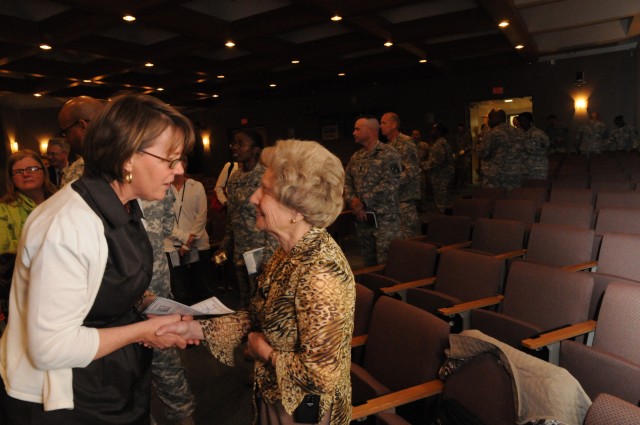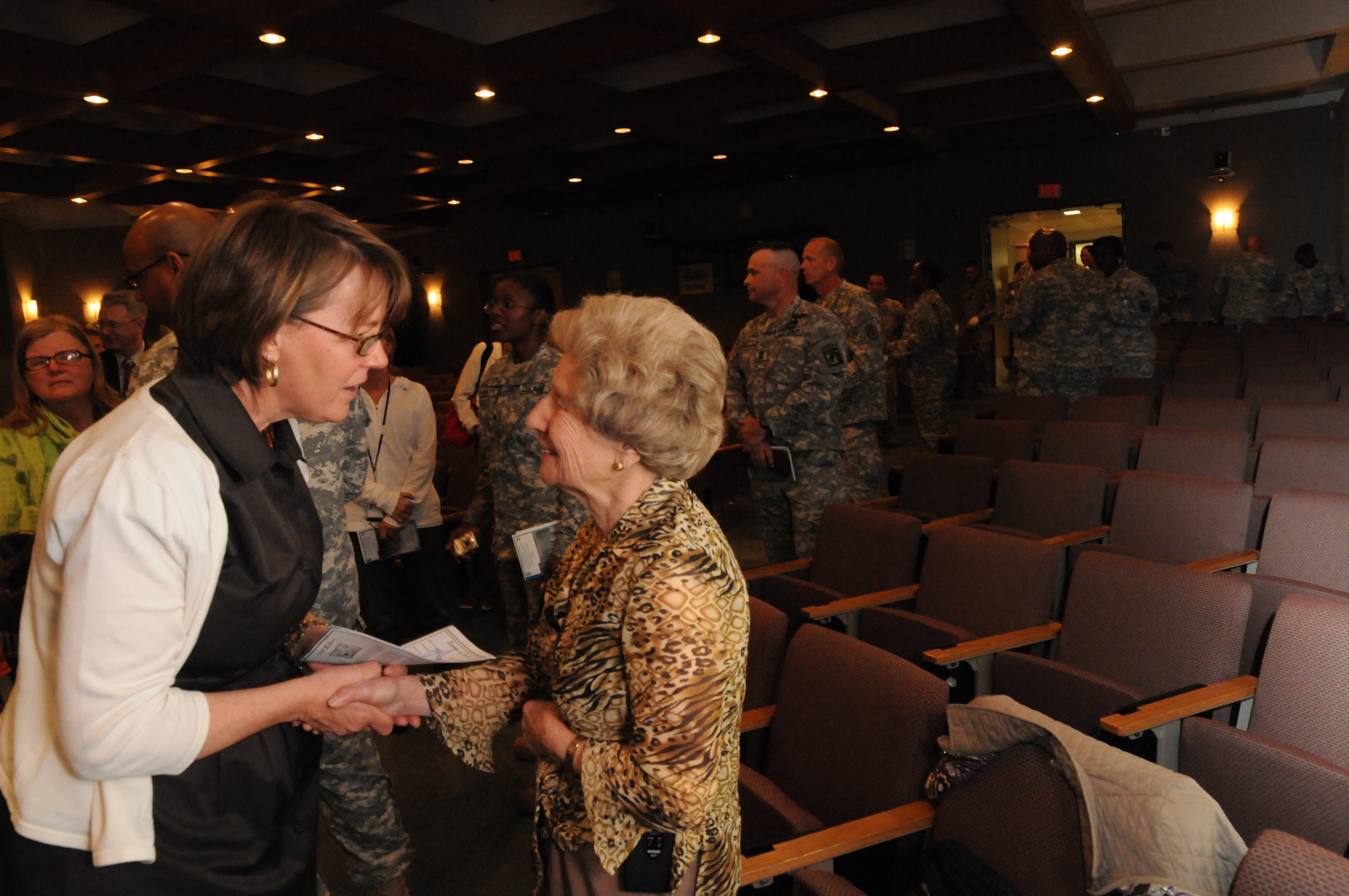
FORT BRAGG, N.C. - In a video presentation, North Carolinian survivors of the holocaust talk about still crying at the sound of sirens; of being afraid; of the freedom to walk without being accosted after liberation of the concentration camps. They talk of speaking up so that others will know what they endured.
"For most of it, I have no words," said broadcaster Ed Murrow in describing the horrifying images that came from those liberated concentration camps.
Fort Bragg took time April 15 to remember those who suffered the holocaust, the voices of those who can still tell of its atrocities and the silence of those whose voices were forever lost.
"The Holocaust: Days of Remembrance" was presented by the XVIII Airborne Corps, 525th Battlefield Surveillance Brigade, Womack Army Medical Center and the U.S. Special Operations Command in an 11:30 a.m. ceremony in Weaver Auditorium.
Gizella Abramson served as guest speaker. She recounted the days preceding the arrival of German forces to her native Poland. The daughter of an educated Polish family, Abramson was 11 years old when war loomed and hostilities towards Jews penetrated her daily life.
During World War II, Abramson was interned at various concentration camps throughout Europe.
She recalled the barbarity of seeing people perish for no other reason than being Jewish.
"You put your hands on your eyes because you don't want to see," Abramson said. "You put your hands on your ears because you don't want to hear."
In desperation, she asked, "If I did something wrong, God forgive me."
The holocaust, according to some figures, wiped out close to two-thirds of Europe's Jewish population. About six million Jews died because of their religion.
Rabbi (Maj.) Ira Ehrenpreis, donning his yarmulke or skullcap, prayed for the obliteration of the names of German oppressors.
Carol V. Brooks, chairperson of the Special Emphasis Program Committee, attended the remembrance.
"History has a way of repeating itself. If we don't listen to those who have endured it and overcome it," Brooks said. "It's a tool that we can use to better combat bigotry, hatred, prejudice and anything that destroys the human being as a person."
Nicole I. Williams agreed.
"We can learn from history; learn the lessons that history presents to improve the Fort Bragg workforce," said Williams, who works in the Equal Employment Opportunity Office. "(We can) create equal opportunity for everyone, overcome identified barriers and allow our leaders to create and sustain an all-inclusive work environment that everyone will want to experience," she said.
American forces liberated the Jews during World War II. Abramson moved to the United States in 1946 and married in 1952. Some 20 years later, she began to speak about her holocaust experiences and said she remains grateful to the forces who brought her liberation and gave her the freedom to live a productive life.
"I don't know if you are born here, if you realize how wonderful this country is," she said in her closing remarks to Soldiers. "People in Russia, Poland and in Germany, may they know the preciousness of all of you."

Social Sharing